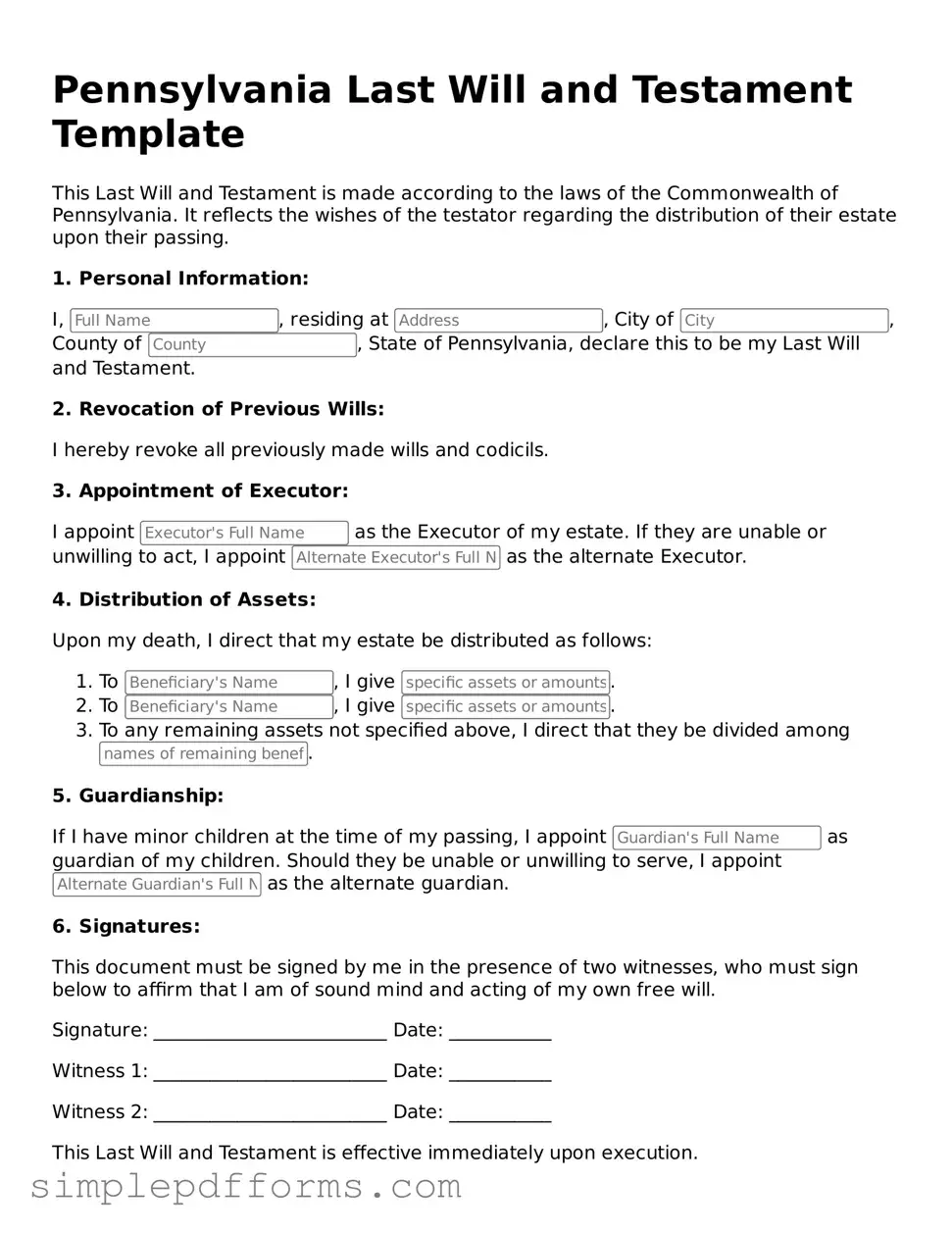Attorney-Verified Last Will and Testament Document for Pennsylvania State
The Pennsylvania Last Will and Testament form is a legal document that outlines how a person's assets and affairs will be managed after their death. This form allows individuals to specify their wishes regarding the distribution of property, appointment of guardians, and other important matters. Understanding this form is essential for ensuring that one's intentions are honored and legally recognized.
Open Last Will and Testament Editor Now

Attorney-Verified Last Will and Testament Document for Pennsylvania State
Open Last Will and Testament Editor Now

Open Last Will and Testament Editor Now
or
Get Last Will and Testament PDF Form
Your form is waiting for completion
Complete Last Will and Testament online in minutes with ease.